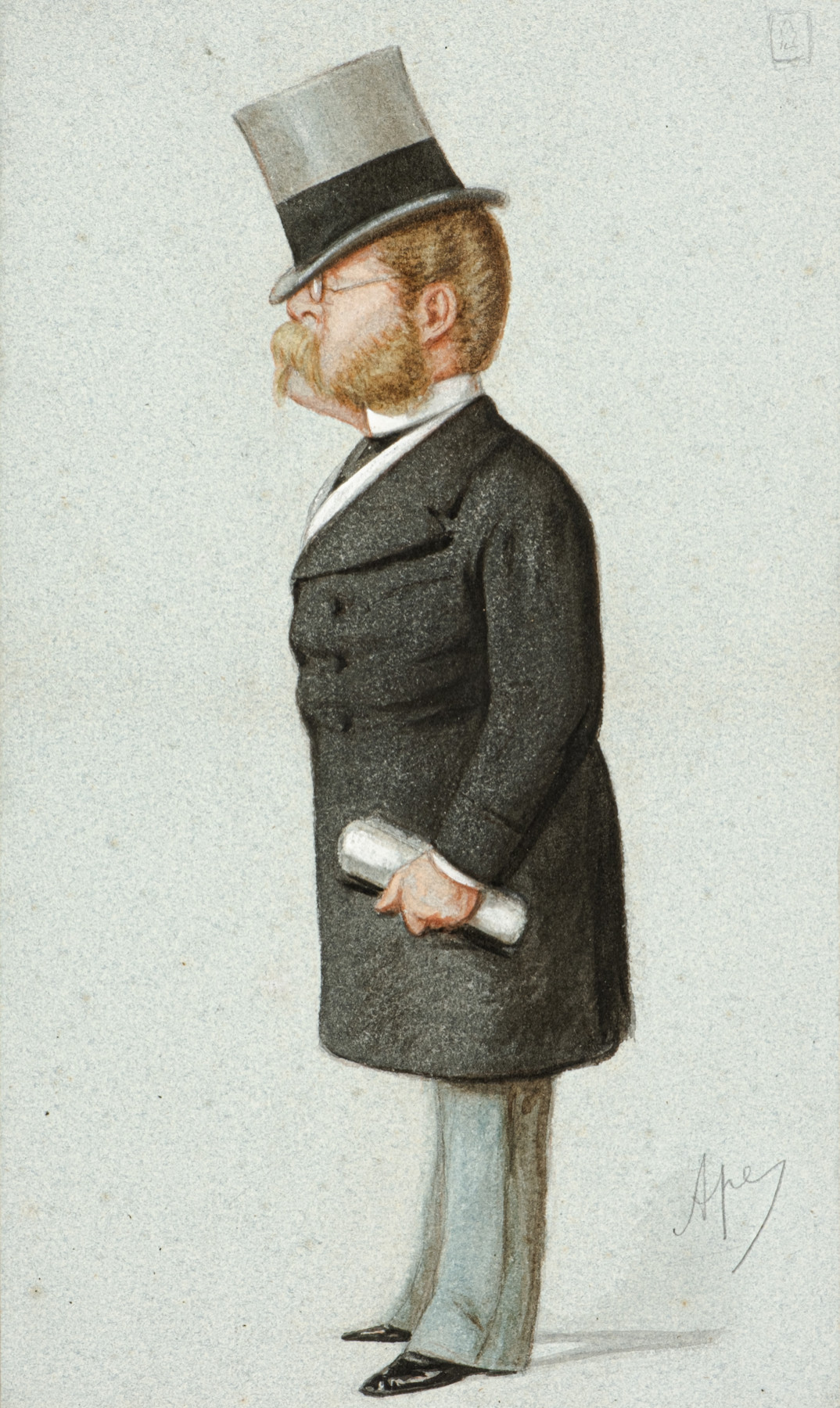
(click image to enlarge)
At the time of his appearance in Vanity Fair, Sir Henry Drummond-Wolff (1830-1908) had just become MP for Christchurch. He served in this role until 1880, when he became MP for Portsmouth. In 1885, he was sent to Constantinople and Egypt to negotiate as part of the Eastern Question and would serve as the British high commissioner in Egypt from 1885 to 1887.
“Provided by fortune with influential relatives, Drummond Wolf became a clerk in the Foreign Office at sixteen, and a lieutenant in the Norfolk Militia at twenty.
He was then made Attaché at Florence, and was even for some time Chargé d'Affaires there before he was twenty-two. Subsequently he was Private Secretary to a Foreign Minister, and in 1859 he received what was held to be signal promotion by being appointed as Secretary to the High Commissioner of the Ionian Islands. The best things of the best kind of permanent official career were open to him, and certain to become his; but he was too active-minded, restless, and enterprising a man to be satisfied with any long and beaten though safe road to a merely respectable competency and position. He soon
cast himself loose, therefore, from the official leading-strings, and began to embark in private enterprises of his own, and to contest seats in Parliament with an industry and cleverness only equalled by his want of success.
He fell in succession at Dorchester, at Windsor, and at Christchurch before men certainly not his equals in ability; but having greatly interested himself in the welfare and prosperity of the Christchurch borough, having fixed his residence there, and created a neighbouring Spa, he was returned as in the due course of events at the last election by the borough of his choice. Great things were expected of him. He was known to be as ambitious as he was able, and with the knowledge he had acquired of the inner machinery of the Foreign Department, and the inclination he had shown to acknowledge no superior and to take. an entirely independent course of his own, it was feared by the Conservative chiefs that he would be hard to lead. So indeed he has proved, and having inflicted upon the Foreign Office as represented by Lord Derby a signal defeat in the matter of consular chaplains, he is already regarded as dangerous, which is the sure preliminary of being held to be necessary. He speaks seldom and shortly, and therefore is always listened to; and he has a knack of discovering nasty questions which renders it a serious matter for him to speak at all. He has lived forty-four years in the world and has not yet learnt the art of saying nothing but what is absolutely safe; yet he has found it easier to be trusted than to trust.
A cynic himself, yet with abundance of good temper, he looks upon men and things with an airy careless disbelief in their serious importance which is in itself a power. Witty and bright of converse and suspected of being a ready writer, he is much in favour as a guest with all who know him; and were he ever to embark in other than political pursuits, his brilliant and persuasive speech would win any amount of support for any undertaking he might patronise.”